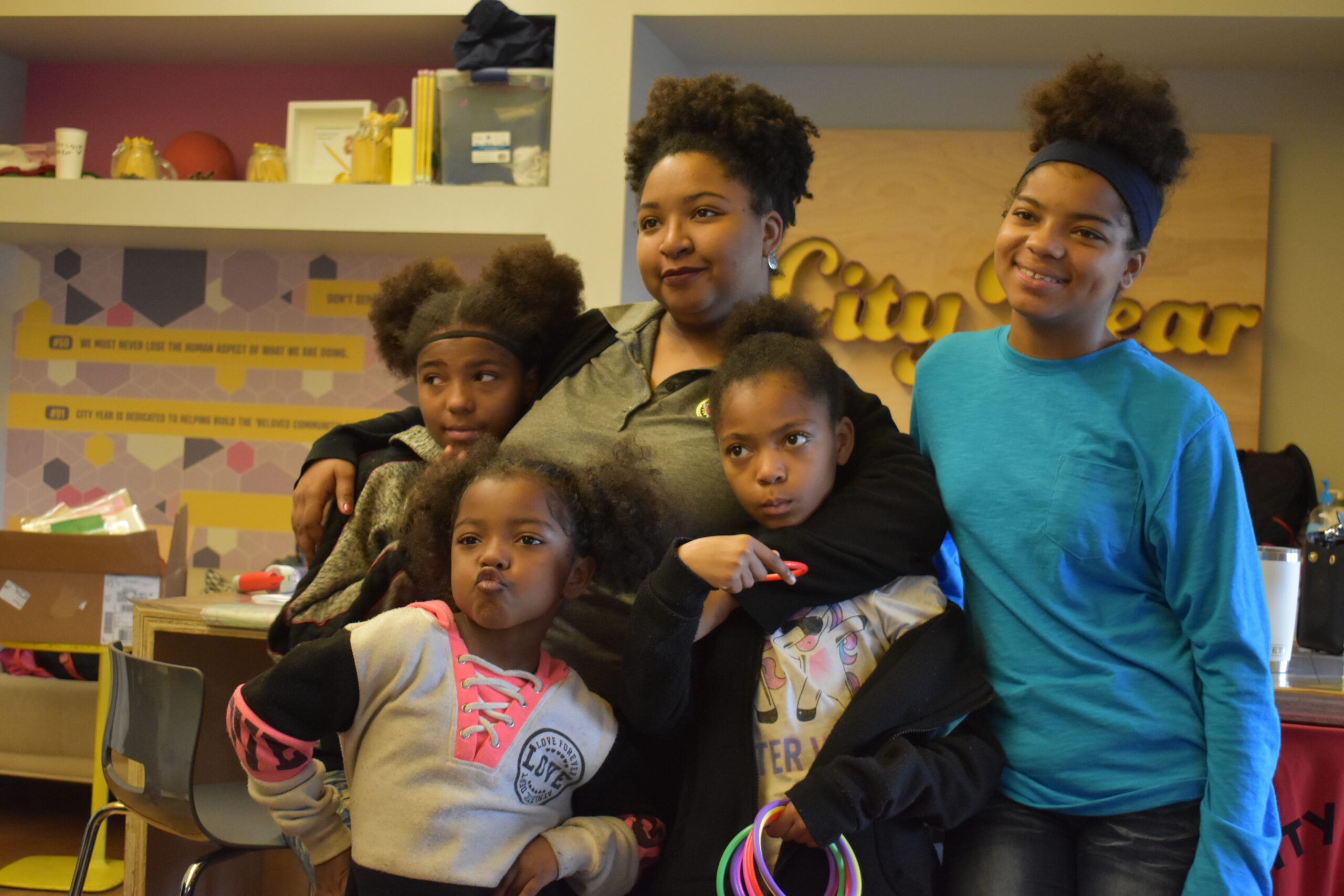A Look at Language

Join the discussion!
City Year Detroit is thrilled to feature a special guest! Tomorrow, we will be hosting a virtual discussion with Teacher-Researcher-Activist, Dr. April Baker Bell! In addition to her role as Associate Professor of Language, Literacy, and English Education at Michigan State University, Dr. Baker-Bell is the author of Linguistic Justice: Black Language, Literacy, Identity, and Pedagogy. She will be joining our Student Success Coaches to discuss her new book, as they complete their month of training and prepare to serve our students in a few weeks.

Why is the language we use important?
Like Dr. Baker-Bell, we believe that developing the skills and mindsets of all children and young adults contributes to strong, vibrant communities. Along with her book, our focus this week will be the power of language and messaging in the work we do. We often discuss the students and communities we serve; here in Detroit, that’s over 7,000 students in 11 schools, which are part of the Detroit Public Schools Community District (DPSCD). When we’re representing our students, it’s essential that we authentically represent their voices and experiences. We’re excited to share how we talk about our work and our approach to describing the students, communities, and schools we support.
What we keep in mind when communicating about our young scholars, their families, and communities
Use asset-based language. Avoid ‘at-risk’ and similar labels.
In the past, City Year—as well as others in the education field at large—have used terms like “at-risk,” “high-poverty,” “low-performing,” and more recently, “high-need,” largely as a way to describe specific students and schools. We have, however, intentionally moved away from those terms for several reasons. These terms, particularly when they are used as modifiers for students, schools, and communities, are deficit-based and have a stigmatizing effect. We believe, they label entire groups of people with a negative attribute and ignore the strengths inherent to them. When used without some explanation of the systemic factors* that have created these conditions for our students and communities, these terms place blame on those who live in these spaces instead.
How can you adjust your mindset to be a leader in the community?
Connect back to the “why.” Discuss larger systems and be specific.
Whenever possible, describe students as “students who lack access to the kinds of learning opportunities and environments they need due to systemic inequities.” It is also appropriate to use the term “systemically under-resourced” when describing the schools and communities we serve in, with the goal of including some mention of the systemic reasons why these schools and communities are under-resourced. Also, it is important to note that when we say, “under-resourced,” we’re not only referring to financial resources but other kinds of resources as well.
Want to learn more? Here’s what we’re reading!
- 7 Systemic Factors of Poverty: Economic and Social Exclusion
- The Most Important Work We’ll Never Finish
- Delinquent. Dropout. At-Risk. When Words Become Labels
- ‘You Can’t Lift People Up by Putting Them Down’: How to Talk About Tough Issues of Race, Poverty, and More
Related stories
Hughey Newsome joined the City Year Detroit Board in 2024 and is already a big asset to our organization. Hughey...
Read more about Board Spotlight - Hughey NewsomeCity Year Detroit AmeriCorps members serve as Student Success Coaches from the morning bell to the end of the day...
Read more about Meet City Year Detroit's Team Bethune & Team GompersCity Year Detroit’s school team at Gompers Elementary-Middle School nominated Ms. Laurielle Martin for our School Partner Spotlight because...
Read more about City Year Detroit School Partner Spotlight – Laurielle MartinCity Year Detroit’s school team at Bethune Elementary-Middle School nominated Mrs. Linda Jackson for our School Partner Spotlight because...
Read more about City Year Detroit School Partner Spotlight – Linda Jackson















